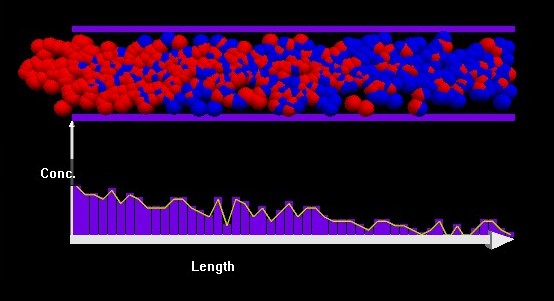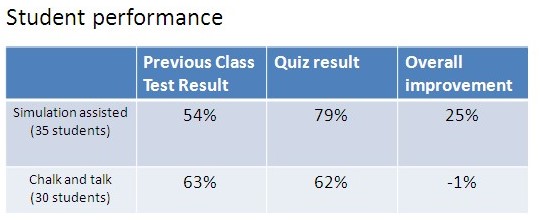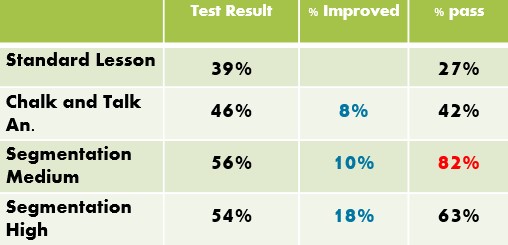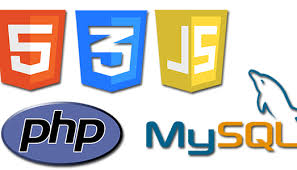Technical Grant Writer /social media professional R10k-R16k /mo

A full-time position is available for a writer with experience and skill who can also produce passable graphics, engage with social media and generally assist with business development and marketing. The position largely involves writing funding applications and technical reports, together with web-copy. The employee must be able to write clearly, concisely and precisely, and generally be able to construct text based on discussions and instructions received. The writer must have experience in writing for business and have developed a strong ‘voice’. Basic prerequisites include accurate spelling and grammar usage. English must be the first language.
Candidates with the following experience will be well-suited to the post:
- Describing software and/or engineering products through the written word
- fundraising and writing grant proposals
- academic technical writing
- business plans and development of marketing materials
The writing will largely involve attracting researchers and funders to projects in education and environmental conservation. These exciting projects are based on cutting edge research aimed at improving the economic profile of South Africa. The company is undergoing strong growth and there is excellent potential for promotion to posts at higher levels.
All short-listed candidates will undergo competence testing (written test).
Only candidates holding completed Bachelor’s degrees will be considered.
The post will become active mid- to end-October, is full-time and the employee will be based at the University of KwaZulu-Natal (Howard College Campus in Berea, Durban).
Starting salary is R10k/mo with an anticipated increase to R16k/mo based on progress. The first three months will be a probation period, followed by a review at six months; depending on the level of success of the candidate and alignment with company goals, the salary may be further adjusted.
To be considered, please email a PDF’d CV to staffing@nanoblu.net. The CV must include the following:
- Proficiency summary describing level of experience in writing for technical reporting and/or fundraising. Describe any projects you’ve been involved in.
- Qualification with majors, certified copy of academic transcript
- Employment history
- photoID (passport photo)
- Possible date of assumption of duties.
Process: deadline for applications is 19 September 2016. Shortlisted candidates will be notified by 24 September 2016 of an interview (0.5 hour) and proficiency test (1 hour) on a day 26-30 September 2016. The successful candidate will be informed 3 October at the latest.
 Our passion is Artificial Intelligence and the new field of Big Data. We love analysing streams of data, extracting meaning, and delivering advice in natural language. The world is in flux today with new competition, new products and services, and new needs rising each month. Almost all companies are analysing data in some form, to varying degrees of success. The only enterprises that can have long term success are those that analyse the on-going changes continuously and act on the advice.
Our passion is Artificial Intelligence and the new field of Big Data. We love analysing streams of data, extracting meaning, and delivering advice in natural language. The world is in flux today with new competition, new products and services, and new needs rising each month. Almost all companies are analysing data in some form, to varying degrees of success. The only enterprises that can have long term success are those that analyse the on-going changes continuously and act on the advice.
 We work with medium to large industry ranging from government bodies to the manufacturing sector. Some recent implementations have been at universities, the chemicals process industry and a national security agency. Our analysis is helping shape the education policy of a government.
We work with medium to large industry ranging from government bodies to the manufacturing sector. Some recent implementations have been at universities, the chemicals process industry and a national security agency. Our analysis is helping shape the education policy of a government.
 However, it was discovered in the results provided by the system that the complexity and sheer number of possible routes had been underestimated. For example, in one case study, it was discovered that even in a structured degree having prescribed coursework in the first semester of the first year, a total of twelve routes were possible, and that there were significant numbers of students entering all twelve routes. Each subsequent semester introduces yet more variation in courses passed, with the result that the number of progression routes on the order of 1000. Therefore, although the system does deliver what it had promised to, the results are quite difficult to comprehend and act on for a human operator.
However, it was discovered in the results provided by the system that the complexity and sheer number of possible routes had been underestimated. For example, in one case study, it was discovered that even in a structured degree having prescribed coursework in the first semester of the first year, a total of twelve routes were possible, and that there were significant numbers of students entering all twelve routes. Each subsequent semester introduces yet more variation in courses passed, with the result that the number of progression routes on the order of 1000. Therefore, although the system does deliver what it had promised to, the results are quite difficult to comprehend and act on for a human operator. Industrial symbiosis is not a new concept; it has been an aspiration of the chemicals industry for several decades and has been successfully implemented in some countries. In South Africa, there are opportunities for development. There are strong economic drivers; in modern times, however, stronger economic pressures resulting from globalisation and other factors have increased the importance of this approach. New legislation increasingly imposes restrictions on the treatment of wastes and by-products, and such policies continue to be developed. Even in the absence of national government legislation, export possibilities are becoming limited by the increasing demands from international buyers with regard to the production process.
Industrial symbiosis is not a new concept; it has been an aspiration of the chemicals industry for several decades and has been successfully implemented in some countries. In South Africa, there are opportunities for development. There are strong economic drivers; in modern times, however, stronger economic pressures resulting from globalisation and other factors have increased the importance of this approach. New legislation increasingly imposes restrictions on the treatment of wastes and by-products, and such policies continue to be developed. Even in the absence of national government legislation, export possibilities are becoming limited by the increasing demands from international buyers with regard to the production process.  The AutoLab is to be created through a series of joint ventures between the public and private sectors. The public sector venture concerns research into new technologies through interactions with institutions of higher learning, as well as training and staff development in the form of short courses. The funding from government for such research and development are already major contributors to such labs. In addition, the provision and facilitation of rigorous testing and analysis for the chemicals industry and consumers of the chemicals industry allows for the operations to expand at a greater scale. The access to high capital-value research equipment as well as fully trained experts in acquiring and analysing such data is expected to result in particularly useful interactions and applications in the industry. In particular, the research articles in accredited scientific journals as well as international conference presentations will result in marketing materials that companies can use when approaching customers.
The AutoLab is to be created through a series of joint ventures between the public and private sectors. The public sector venture concerns research into new technologies through interactions with institutions of higher learning, as well as training and staff development in the form of short courses. The funding from government for such research and development are already major contributors to such labs. In addition, the provision and facilitation of rigorous testing and analysis for the chemicals industry and consumers of the chemicals industry allows for the operations to expand at a greater scale. The access to high capital-value research equipment as well as fully trained experts in acquiring and analysing such data is expected to result in particularly useful interactions and applications in the industry. In particular, the research articles in accredited scientific journals as well as international conference presentations will result in marketing materials that companies can use when approaching customers. The principle technologies and concepts on which the AutoLab is to be based are as follows:
The principle technologies and concepts on which the AutoLab is to be based are as follows: The education context is developed from a higher education perspective. The relevance of the project emerges through a description of the functionality of the core components, namely, Autoscholar Advisor, Giant Shoulders and Publon Press.
In the Autoscholar Advisor component, Artificial Intelligence is applied to assist the academic with managing the progression routes used by students in completing a degree. Automation assistance provides the academic with tools to apply the progression rules more fairly and consistently. Various features of this aspect of the project make it possible to optimise a curriculum and aid both the teacher and student to engage with the education process with greater awareness, consistency and quality.
The education context is developed from a higher education perspective. The relevance of the project emerges through a description of the functionality of the core components, namely, Autoscholar Advisor, Giant Shoulders and Publon Press.
In the Autoscholar Advisor component, Artificial Intelligence is applied to assist the academic with managing the progression routes used by students in completing a degree. Automation assistance provides the academic with tools to apply the progression rules more fairly and consistently. Various features of this aspect of the project make it possible to optimise a curriculum and aid both the teacher and student to engage with the education process with greater awareness, consistency and quality.  With regard to the Giant’s Shoulders component, visualisation through animated simulations is applied to the teaching of complex concepts. Effectiveness testing (from pilot implementation) results show overall pass rate improvements of over 25% at the tertiary level and similar improvements at the secondary level. The testing has so far involved short animations (8 -12 minutes in duration); it is anticipated that more detailed animations will yield even greater impact. Such content is generated through the project’s Publon Press component. In this third pillar of the Modern Scholarship endeavour, it becomes possible to incentivise and reward the creation of Giant’s Shoulders teaching content, and to track and monitor the usage of the materials through the Advisor Autopilot.
With regard to the Giant’s Shoulders component, visualisation through animated simulations is applied to the teaching of complex concepts. Effectiveness testing (from pilot implementation) results show overall pass rate improvements of over 25% at the tertiary level and similar improvements at the secondary level. The testing has so far involved short animations (8 -12 minutes in duration); it is anticipated that more detailed animations will yield even greater impact. Such content is generated through the project’s Publon Press component. In this third pillar of the Modern Scholarship endeavour, it becomes possible to incentivise and reward the creation of Giant’s Shoulders teaching content, and to track and monitor the usage of the materials through the Advisor Autopilot. An additional benefit of the Modern Scholarship project is the multi-institution possibilities of transfer not only of knowledge but of staff and students between institutions. It is to the detriment of South Africa that Universities and Technical Colleges/Technikons are not better integrated. The disturbing trend is that students who are better suited to vocations within their grasp still insist on achieving University degrees from institutions that are ill-equipped to manage the level of preparation by such students. Indeed, South Africa is at the stage in its development where artisans and technicians are of far greater utility than engineers and scientists. One key application of the Modern Scholarship project is to enable a student who might have failed out of an institution to easily and quickly identify a fall-back education position, as well as to transfer his credits and become a productive contributor to the economic system far more quickly.
An additional benefit of the Modern Scholarship project is the multi-institution possibilities of transfer not only of knowledge but of staff and students between institutions. It is to the detriment of South Africa that Universities and Technical Colleges/Technikons are not better integrated. The disturbing trend is that students who are better suited to vocations within their grasp still insist on achieving University degrees from institutions that are ill-equipped to manage the level of preparation by such students. Indeed, South Africa is at the stage in its development where artisans and technicians are of far greater utility than engineers and scientists. One key application of the Modern Scholarship project is to enable a student who might have failed out of an institution to easily and quickly identify a fall-back education position, as well as to transfer his credits and become a productive contributor to the economic system far more quickly. Two full-time positions are available for excellent full-stack programmers (Javascript, Php, SQL, HTML, CSS). The position will involve working with a framework developed by the company; the employee will extend the functionality of the framework, and also provide technical support and assistance to other users of the framework. The applications of the framework are focussed on education and environmental conservation. These exciting projects are based on cutting edge research aimed at improving the economic profile of South Africa. The company is undergoing strong growth and there is excellent potential for promotion to posts at higher levels.
Two full-time positions are available for excellent full-stack programmers (Javascript, Php, SQL, HTML, CSS). The position will involve working with a framework developed by the company; the employee will extend the functionality of the framework, and also provide technical support and assistance to other users of the framework. The applications of the framework are focussed on education and environmental conservation. These exciting projects are based on cutting edge research aimed at improving the economic profile of South Africa. The company is undergoing strong growth and there is excellent potential for promotion to posts at higher levels. A full-time position is available for a writer with experience and skill who can also produce passable graphics, engage with social media and generally assist with business development and marketing. The position largely involves writing funding applications and technical reports, together with web-copy. The employee must be able to write clearly, concisely and precisely, and generally be able to construct text based on discussions and instructions received. The writer must have experience in writing for business and have developed a strong ‘voice’. Basic prerequisites include accurate spelling and grammar usage. English must be the first language.
A full-time position is available for a writer with experience and skill who can also produce passable graphics, engage with social media and generally assist with business development and marketing. The position largely involves writing funding applications and technical reports, together with web-copy. The employee must be able to write clearly, concisely and precisely, and generally be able to construct text based on discussions and instructions received. The writer must have experience in writing for business and have developed a strong ‘voice’. Basic prerequisites include accurate spelling and grammar usage. English must be the first language.